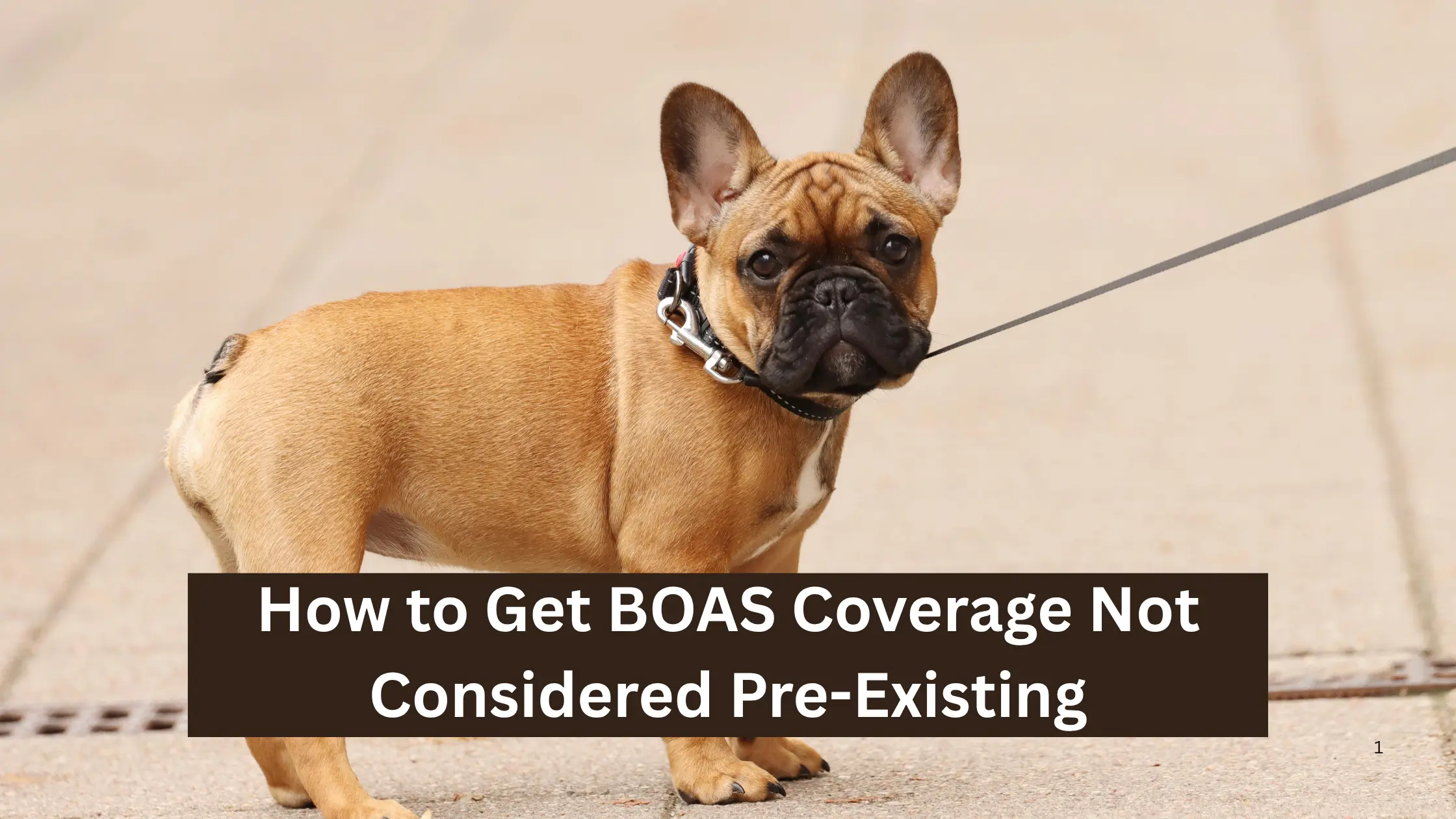Hey Frenchie (or Pug, or Bulldog!) parents!
We all adore those squishy faces, but let’s be real: they come with unique health considerations. If you’ve spent any time researching pet insurance for your brachycephalic (flat-faced) buddy, you’ve probably stumbled upon the dreaded phrase: “pre-existing condition.”
When it comes to something like BOAS (Brachycephalic Obstructive Airway Syndrome), getting coverage after symptoms appear is usually a no-go. But what if there was a smart strategy to ensure your fur baby can be covered if they ever need BOAS surgery?
Good news: there is! It all comes down to timing and a little bit of know-how. Let’s dive in.
Understanding the “Pre-Existing” Trap
Here’s the core rule of pet insurance: it covers unexpected future events, not problems that already exist.
For BOAS, this means if your dog shows any signs of breathing difficulty – snoring, snorting, gagging, easily tiring – before your policy starts and its waiting periods are over, an insurer will almost certainly deem it pre-existing. This means no coverage for BOAS-related treatments or surgery.
So, how do you avoid this trap and ensure potential future BOAS surgery isn’t excluded?
The Golden Rule: Insure Early, Insure Smart!
This is the single most important piece of advice:
1. Enroll When Your Pet is a Young Puppy (and Symptom-Free!):
This is your absolute best window. Get a comprehensive pet insurance policy as soon as you bring your Frenchie, Pug, or English Bulldog puppy home.
- Why it works: At a young age, most puppies haven’t developed significant BOAS symptoms yet. By enrolling before any signs appear, the condition won’t be considered pre-existing if it develops later.
- Action Step: Don’t wait! The day you get your puppy is almost the ideal day to start looking into insurance.
2. Schedule a “Clean Bill of Health” Vet Visit:
Before or very soon after your policy starts (and definitely before any waiting periods are over), take your puppy to the vet for a full check-up.
- Why it works: The vet’s detailed notes will become your proof. If the vet explicitly states your puppy is healthy and shows no signs of BOAS, these records will be invaluable if you ever need to file a claim later. It provides a baseline that the condition was not present at the time of enrollment.
- Action Step: Ask your vet to note in your pet’s file that their airways appear clear and healthy for their breed.
3. Understand and Respect Waiting Periods:
Every pet insurance policy has waiting periods – a short time after you buy the policy before coverage for certain conditions begins.
- Why it works: If your pet develops BOAS symptoms during the waiting period, it could still be considered pre-existing. You need to get through this period with no signs of the condition.
- Action Step: Know your policy’s waiting periods (typically 14-30 days for illnesses) and try to avoid any strenuous activity or situations that might exacerbate potential breathing issues during this time.
4. Opt for a Comprehensive Policy:
Look for plans that specifically cover “hereditary” or “congenital” conditions. BOAS is often considered hereditary in brachycephalic breeds.
- Why it works: Not all basic plans cover hereditary conditions, and you definitely want this clause for BOAS.
- Action Step: When comparing policies, explicitly ask if hereditary conditions like BOAS are covered, assuming they aren’t pre-existing.
What if My Dog Already Shows Mild Symptoms?
This is a tougher spot, but not entirely hopeless for all future issues. If your dog already has signs of BOAS, that specific condition will likely be excluded. However, getting insurance now can still protect them from other unexpected accidents or illnesses that aren’t related to their current BOAS. Future ear infections, broken bones, or cancer would still be covered (assuming they aren’t pre-existing either).
The Takeaway: Proactive Planning is Key!
Thinking about pet insurance for BOAS isn’t about wishing for a problem; it’s about smart, loving preparedness. By enrolling your flat-faced friend when they’re young and healthy, and getting those vital vet records, you set them (and your wallet!) up for the best possible protection.
Don’t wait until you hear that worrying snort. Give your beloved companion the gift of secure breathing and a healthy future!
